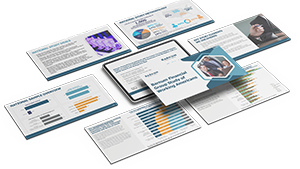
Winter is in full gear which means the surge in energy bills is inevitable. The cost of heating your home can eat up your savings before spring arrives. Keep your finances intact through winter with these practical energy-saving strategies.
Embrace Thermostat Adjustments
Curb energy expenses by programming your thermostat to lower temperatures when you’re not home or asleep. This simple adjustment can reduce energy consumption, lower utility bills, and maximize energy efficiency. Moreover, this easy solution enhances your savings without compromising comfort.
Seal the Leaks, Block the Drafts
Halt drafts and air leaks by sealing gaps around windows and doors. Use caulk or weatherstripping to reinforce vulnerable areas, creating a barrier against unwanted airflow. Additionally, install door sweeps to enhance insulation and prevent heat loss. This straightforward process boosts energy efficiency and safeguards your home from chilly currents, ultimately reducing heating costs.
Insulate Your Pipes
Avoid the potential of frozen pipes (and the repair expense that comes with it) by insulating exposed pipes in your home. Use pipe insulation or heat tape to create a protective barrier around your pipes, keeping them resilient against freezing temperatures. Aside from mitigating costly repairs, pipe insulation guarantees the uninterrupted functionality of your plumbing system during winter.
Maintain Your Heating System
Ensure peak efficiency of your heating system through regular maintenance. Consistently replace air filters to uphold air quality and system performance. Schedule annual furnace tune-ups to identify and address potential issues and ensure a well-functioning system. Promptly attend to any lingering problems to prevent further complications. Maintenance optimizes energy efficiency and extends the lifespan of your heating equipment, promoting cost-effectiveness.
Consider Energy-Efficient Appliances
Select energy-efficient appliances when replacing or installing new units to reduce energy expenditure and bills. Energy-saving appliances have the technology and systems that optimize performance while decreasing energy consumption. They also align with sustainable practices, lowering environmental impact.
Embrace Simple Habits
Conserve energy by turning off lights and unplugging electronics when not in use to reduce electricity consumption. Additionally, take shorter showers to conserve water and energy. Prolonged exposure to hot showers strips moisture from your skin. Adopting this eco-friendly practice keeps your skin from drying excessively.
Review Your Insurance Coverage
Protect your home against potential winter-related damages by having adequate insurance coverage. Regularly review your policy to assess its relevance and update it if necessary. An insurance cover safeguards your property from unforeseen winter risks, providing financial protection in case of damage. Stay prepared and informed, making certain that your insurance coverage aligns with the changing needs of the season.
Seek Professional Guidance
Enhance your home’s energy efficiency by consulting a qualified HVAC technician or a home energy auditor to identify specific areas for improvement, optimizing your home’s overall energy performance. Professional insights guide you into making one-time changes and upgrades that are cost-effective in the long run.
Cultivate An Energy-Saving Habit
Winter expenses are a given. A proactive approach to energy-saving strategies helps you maintain warmth and comfort in your home without emptying your scoffers.
Each step contributes to a more sustainable and resilient living environment, from energy-efficient appliance choices to proactive home maintenance. Enhance the efficiency of your home and make meaningful contributions to environmental conservation.




